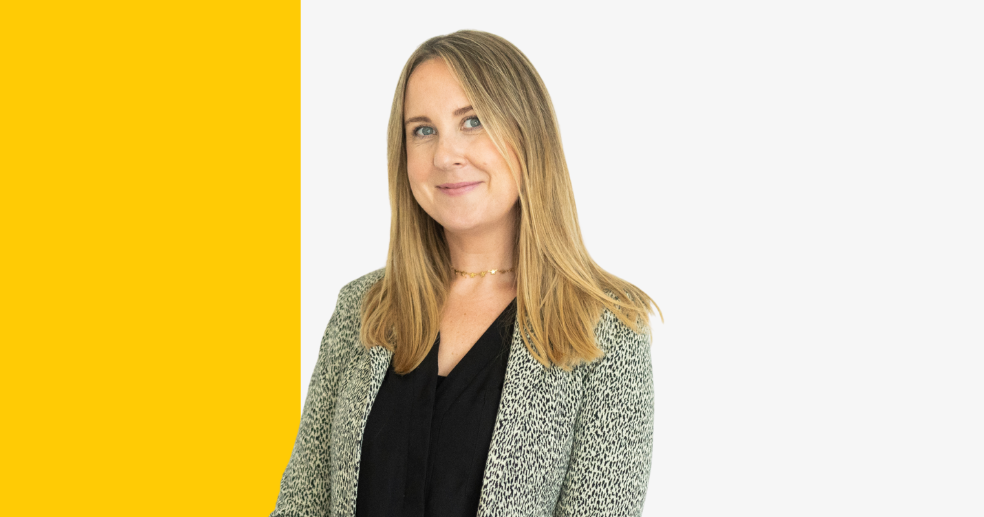We’re officially into the second half of 2025 – and with five months to go before the year wraps, now’s the perfect time to check in on your finances.
A mid-year review doesn’t need to be worrying or complicated, but it can make a big difference, especially as the cost of living continues to pinch and BoE rates and inflation rates remain unpredictable. At Hodge, we’re big believers in taking small practical steps to feel more in control.
Together, let’s walk through a simple no-nonsense financial check-up you can do right now. So, whether you’re saving for retirement, have big future plans or simply rethinking how you manage your money, we’ve got you covered.
Why July matters more than you think
According to the ONS (2025), by July the average UK saver is only around 42% of the way towards their yearly goal. So, if you feel like you’re falling behind, you’re not alone – and it’s definitely not too late to make progress that counts and prepare for those moments that matter.
Calendar vs tax year midpoint
People often think of April, and a new tax year, as the key checkpoint for financial planning. But July quietly matters just as much. It marks the calendar year midpoint, which is often when big life events such as holidays, weddings and home upgrades, all start to stack up.
It’s also a chance to course correct before the end of the tax year creeps up on you again, from ISAs and emergency funds to later life lending plans, now’s a smart time to make sure you’re still aligned with your 2025 goals or to set some fresh ones
A 6-point mid-year financial checklist
A simple 6-point checklist can help you pause and reflect on your financial circumstances, helping you make smart adjustments as you move forward confidently into the second-half of the year.
1. Do you need to adjust your savings goal?
Life moves and your savings plans should move with it. Now’s a good time to check whether you need to re-forecast your savings goals.
Have you dipped into your savings pot more than expected? Maybe life’s unplanned costs – like vet bills or emergency car repairs have thrown things off. Or perhaps you’ve been more frugal than you thought and managed to save more than planned.
Either way, take stock. Does your original goal still feel realistic? If not, don’t be afraid to update it, tweak it or set a brand new target – you need to make sure your goals reflects where you are now and where you want to be, and can realistically be, by year-end.
Tip: Check here to learn more about budget plans to suit you.
2. Max out your tax allowances if you can
If you haven’t reviewed your ISA, pension contributions or Personal Savings Allowance (PSA) since April, now’s a good time. Even small top-ups can help ease the pressure later in the year. At Hodge, we offer Cash ISAs and Fixed Rate Bonds as options that might suit a range of savings needs.
Tip: Find out about how much your PSA is and reinvesting your pension. If you’re considering opening a savings account, Hodge offers Cash ISAs, Fixed Rate Bonds or if you’re a flexible saver, our Easy Access savings account is great for the no string attached saver.
3. Stress-test your emergency fund
Unexpected expenses are one of the biggest causes of financial stress and they rarely wait for the right time. During the past year, have you faced car repairs with a surprising bill? Or unexpected travel costs?
Tip: Use our unexpected costs calculator to add up how much you’ve spent on life’s surprises over the past 12 months and see how much interest you could have earned if you’d saved that amount ahead of time. It’s a smart way to plan ahead for the unexpected.
4. Review your later life lending products
If you already have a lifetime mortgage, or are thinking about one, now could be a good time to review your current setup. Interest rates, property values and your personal circumstances can all shift. Even a small change might mean a different product or repayment type could work better for you.
Tip: Find out more about Hodge mortgage products from age 21 up to 95 – designed to support people at all stages of life, whether your considering interest only, roll-up or your first home.
5. Consider switching or overpaying if rates have changed
Whether you’re saving or borrowing, interest rate changes can make a big difference. It’s worth reviewing what you’re earning on your savings – or paying on your mortgage – to see if switching might get you a better deal.
Tip: If you have a mortgage, check whether you’re able to make small overpayments, even modest amounts could help reduce what you pay overall. If you aren’t sure if saving or overpaying your mortgage is the better option, this overview will help.
6. Update your will, power of attorney and beneficiaries
It’s often one of those admin tasks we put off – but mid-year is great time to check whether your will, power of attorney and beneficiaries reflect your wishes. If you don’t have any of these in place, it’s a good time to set one up.
Tip: Speak to a solicitor or an Independent Financial Adviser (IFA) for guidance. You can find a financial adviser at unbiased.co.uk. Getting things in order, regardless of age, means you’re better prepared for those unexpected moments that really matter.
Turbo charge your savings for H2
If the first half of this year has been a little more spendy than expected, the second half could be a chance to reset and rebuild your savings pot.
-
Automate standing orders
If you’ve worked out your new budget and the amount you can regularly save, set up an automated standing order so it goes straight into your savings account when your salary lands in your bank account It’s basically ‘paying yourself first’ and putting those savings aside as a priority, so you can keep yourself on track.
-
Cut three high-impact costs and redirect
Pick three main categories where you know spending has crept up in the past six months – streaming services, subscriptions, takeaways, impulse buys – and redirect that money into savings. It’s a quick win.
Deep-dive: Is your later-life lending strategy still fit for 2025?
Have your priorities changed? Are you thinking more about inheritance? Downsizing? Supporting the family? If you’re over 55 and using, or considering, a later-life lending product like a lifetime mortgage or retirement interest only mortgage (RIO), now’s a good time to check if your plan still works.
The right lending product should move with you- not hold you back. That’s why our mortgage options are designed around lifestyle, not age – because we move with the times, just like you do.
Rate trends and switching costs for mortgages
We’ve seen the Bank of England base rate fluctuate over the past few years and although it’s holding steady (for now), switching or staying put is never a simple decision. If you’re in a fixed rate deal, check when it ends – and if you’re on a variable rate, make sure it’s still the best option for you.
Before switching from one mortgage rate to another, consider all the costs involved – for example admin fees or early repayment charges – to be confident it’s the right financial decision for you. We always recommend speaking to a financial adviser for support. If you don’t already have one, you can start your search, using unbiased.co.uk.
How Hodge can help
We offer different types of savings accounts and are a specialist mortgage lender, designing our products to help you feel more in control, no matter what life brings.
Want to know more? Find out all about our savings accounts and mortgage options and what makes Hodge different - why we’re a bank you can trust with your future, visit us. We’d love to support you on your journey.
Key takeaways
-
Check
42% of savers are behind their savings goal by mid-year – a simple check in now can help you get back on track
-
Review
Review your ISA, pension and overall savings goals
-
Match
If you’re over 50, make sure your later-life lending still matches your needs
-
Cut
Cut back on splurge spending and automate savings monthly
-
Understand
Think about estate planning and understanding the importance your will and lasting powers of attorney (LPAs)
-
Research
Speak with a financial adviser for financial advice that aligns with your best interests
Mid-year finance check-in FAQs
You can speak to an advisor or use a site like unbiased.co.uk to find one near you. They’ll help you with everything from first time buyers looking for support, market insights for savers and investors.
Things like emergency funds, insurance and legal documents, like wills, offer financial protection. If something unexpected happens, these will help keep your plans on track and support your family.
Yes – your priorities and circumstances shift with age. If you’re over 50, you might be thinking about retirement instead of buying your first home – so lifetime mortgages or term finance products, looking into later life lending options for example. Whatever stage of life, your loan or lender should suit your lifestyle, not just your age. And remember, your eligibility criteria will vary, so it’s always a good idea to review regularly.
This depends on your financial needs. If you want quick access to your money, saving is usually best. If you’re thinking longer-term, you can explore investment options ideally with advice. Think about the percentage of income you can safely invest, and always get advice if you’re not sure.
Estate planning usually covers your will, naming beneficiaries and setting up the legal advice tools like LPAs (lasting power of attorneys). It’s about protecting your family and securing your financial goals. You may also want to consider real estate planning and any plans for inheritance tax planning.
Budgeting helps you plan for regular costs and prepare for unexpected ones. Whether you’re planning a family holiday, saving for home improvements or planning a property purchase, it keeps you focused on your financial goals and supports your financial solutions.
Whether you choose to save or pay off debt depends on your situation. If you’re paying high interest (like credit card debt), clearing debt may take priority, but it’s longer term (like a residential mortgage), building some financial protection through savings at the same time can make sense. Some even use support from the Bank of Mum and Dad to help reduce initial borrowing.
If you’re reviewing your finance and insurance options, inheritance tax planning or exploring financial solutions like refurbishment finance, an IFA – or independent financial adviser – can offer tailored guidance. They’ll help you protect your financial goals and make informed decisions.
Savings are typically for short or mid-term needs or emergencies, while investments are more suited to longer-term financial goals and usually involve more risk. Choosing between them will depend on your personal circumstances, so it’s worth speaking to a financial adviser if you’re unsure.
It’s normal for spending and money habits to fluctuate. If you’ve gone over budget, review your outgoings and reset your financial goals, so they’re realistic for the rest of the year. Small changes can make big differences and help you stay on track.
This article is correct at the time of publishing and for general information purposes only. We recommend you speak to a professional financial adviser for advice. You can find a financial adviser and further personal finance information at unbiased.co.uk.









